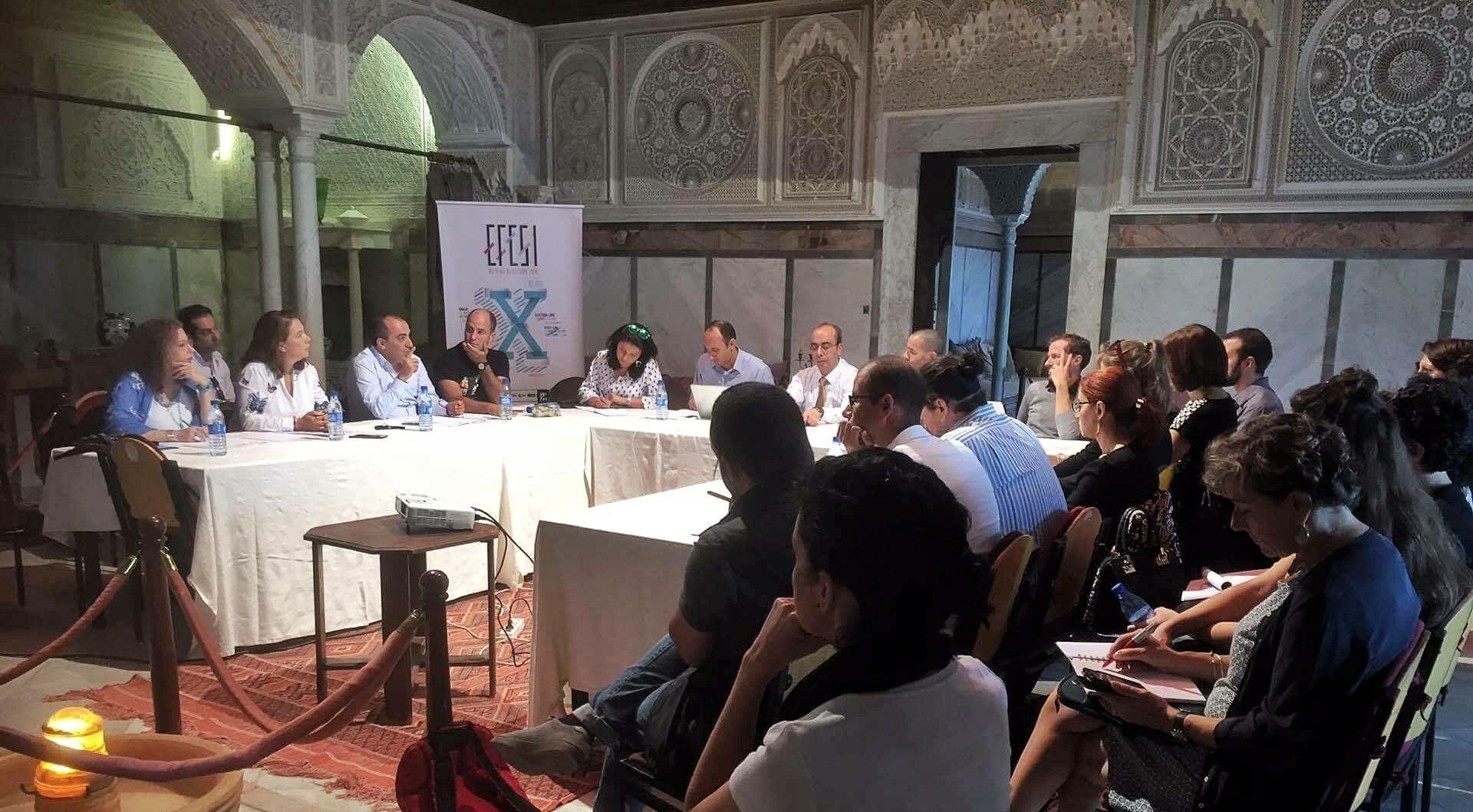
MEETING – CULTURAL ENTREPRENEURSHIP IN TUNISIA: STATE OF PLAY, CHALLENGES AND OBSTACLES
CMAM – SIDI BOU SAID // October 12, 2016
As part of the E-FEST project, the Echos Electrik association, in partnership with the Centre des Musiques Arabes et Méditerranéennes (CMAM), is organizing a professional meeting on the theme of cultural entrepreneurship in Tunisia.
The aim is to initiate a cycle of professional meetings and debates open to the public, dedicated to themes that involve cultural players, elected representatives and decision-makers, around the role of culture as a vector for sustainable economic development, territorial enhancement, democratization and social inclusion.
The tools needed to encourage cultural entrepreneurship in Tunisia have yet to be defined, and the cultural organizations present today are in urgent need of a structured ecosystem and a targeted cultural policy. An inefficient regulatory and administrative framework that doesn’t encourage development, a lack of human, technical and financial resources, a shortage of cultural facilities and a lack of technical equipment in existing spaces are just some of the obstacles encountered by existing and emerging organizations.
The aim of this meeting, which will focus on collective reflection and the sharing of experiences between professionals in the cultural sector, is to identify the obstacles to the development of a cultural entrepreneurship that would galvanize artistic creation, innovation, employment and the attractiveness of the region.
EDITORIAL COMMITTEE
Afif Riahi E-FEST Project Director
Soufiane Feki CMAM General Manager
Anas Ghrab CMAM Project Manager
ROUND TABLE – EDUCATION AND DIGITAL CREATION –
CMAM – SIDI BOU SAID // October 14, 2016
By convening representatives of the higher education and ICT sector, both Tunisian and foreign, to reflect on the process of setting up a university curriculum dedicated to the digital arts. This is the aim of this round table.
Digital technology has evolved from a tool for improving communication to a universal technology, profoundly changing the way we live and organize our lives. If we are to remain masters of global change, we need to be part of the new ways of life in a world turned upside down by digital techniques.
Tunisia, through its public and private institutions, and its Ministry of Communication Technologies, has become aware of the stakes involved, as well as of the strong growth potential that digital technology represents as a vector of economic and social development. However, the full integration of digital technology in the creative and educational sectors remains to be achieved.
By inviting key players in the fields of training, entrepreneurship and artistic distribution, the round table aims to encourage the appropriation and mastery of digital tools for educational, creative and professional purposes.
– How can institutions, industrialists and companies accompany, train and support the new generations to promote innovation and wealth creation in the region?
– How can we democratize these practices for all, and use digital technology as a lever for social integration and individual emancipation?
– How can cross-disciplinary digital practices and cross-fertilization of skills transform project leaders into tomorrow’s entrepreneurs?
The digital professions represent a tremendous opportunity for employability, now and in the future, which should benefit everyone. Cultural inequalities are at the root of social inequalities, and the danger of creating a multi-speed society with a widening gap between an elite reaping the full benefits of growth, and the rest left out of this renewal, is a real challenge for society. A gap that would widen if new technologies were not mastered.